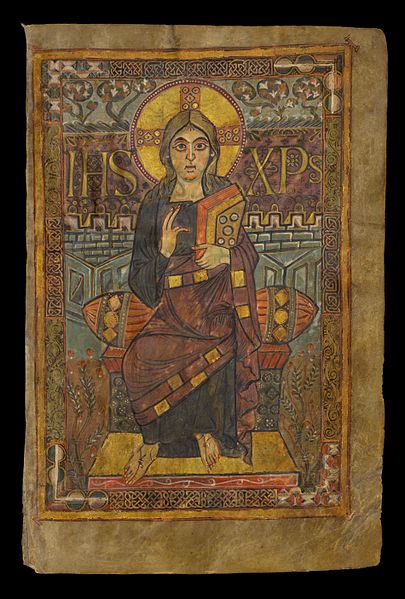Plenty of nice gifts for a godfather
Charlemagne's special tributes to his children's godfathers

Depiction of Christ from the Godescalc Evangeliary - Wikicommons
From the very beginning of Adrian I’s episcopate (772–795), the political situation in the Italian peninsula foreshadowed a turning point in relations between Rome and the Lombards. Diplomatic ties between Desiderius and the pope had become increasingly strained. With the looming threat of a Lombard siege on Rome, Adrian sent messengers to Charlemagne. However, the Frankish king was engaged in another military campaign, leaving the pope with no option but to threaten excommunication—an ultimatum that ultimately compelled Desiderius to abandon his plans. When a Frankish delegation finally arrived in Rome and assessed the situation, a military operation was set into motion.
In 773, Charlemagne led his army into Italy, forcing Desiderius to retreat and barricade himself in Pavia. The following year, on July 10, 774, he decisively defeated the Lombards, assuming the title of "King of the Franks and the Lombards" and taking possession of some of the territories claimed by the pope.
Believing he had fulfilled his obligations to the pontiff, Charlemagne returned to France without handing over the desired territories. This action displeased Adrian, who repeatedly expressed his frustration in numerous letters addressed to the Frankish king.
Charlemagne returned to Italy for Easter in 789. On this occasion, his two sons, Carloman—whose name was changed to Pepin—and Louis, were baptized by Pope Adrian, who became their godfather (compater).
To honor the children's godfather, Charlemagne and his wife, Hildegard, presented him with an Evangeliary commissioned from Godescalc, now considered one of the finest examples of early Carolingian manuscript illumination. The work is renowned for its full-page illustrations, which reflect Byzantine and Ravenna-inspired artistic influences. However, this was not the pope’s most prized gift. On the same occasion, Charlemagne finally granted Adrian some of the former Lombard territories, thus fulfilling the pope’s long-standing requests.
Annales regni Francorum inde ab a. 741 usque ad a. 829, qui dicuntur Annales Laurissenses maiores et Einhardi, edited by Friedrich Kurze, Hannover 1985
Le Liber Pontificalis. Texte, introduction et commentaire, edited by Louis Duchesne, vol.I, Paris, 1886
Jussen B., I franchi, Monaco, Il Mulino, 2015
2025-06-11
Salvatore Ciccarello
